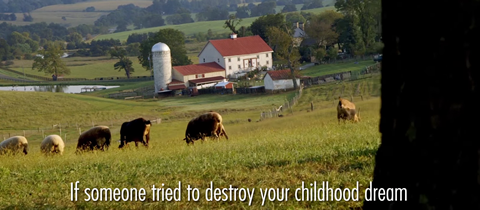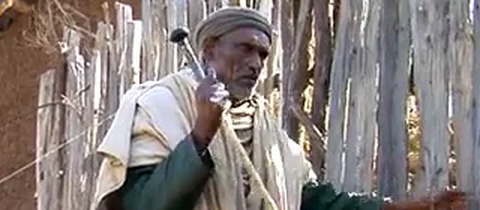(Originally published on Blogcritics.org)
Eight little girls at a birthday party on their neighbor’s farm. What could be more innocent than that? For a bureaucrat in Fauquier County, Virginia, it was the opening to hit farmer Martha Boneta with a $15,000 charge. How could this happen?
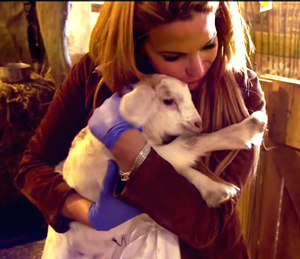
We find the answer in Farming in Fear, a half-hour documentary by director Sean Malone. The film premiered at the Anthem Film Festival, part of the libertarian FreedomFest conference July 8-11, 2015, at Planet Hollywood in Las Vegas.
The nightmare of that $15,000 began with a childhood dream. Boneta dreamed of becoming a working farmer. She wanted to bring homegrown, organic produce to her community. In 2006, she bought a broken down, 200-year-old farm in Paris, Virginia. Liberty Farm was 64 acres, about an hour west of Washington, DC.
She spent two years renovating the property. She planted crops, and brought livestock to the farm. Soon the farm included flocks of free range chickens, guinea hens, ducks, geese, turkeys, emus, goats, sheep, an alpaca, two cows, a pony, and a pig. Boneta also keeps bees and sells the honey, along with handmade goat’s milk soaps, wool, and fresh eggs.
According to the film, the bureaucrats in Fauquier County were tightly networked with a web of politicians and local officials. They aided an environmental group that has a policy of preventing economic development. A film showed at Anthem last year, Empire State Divide, gave other examples of similar prosecution by city elites. That film claimed that they didn’t want any kind of economic activity besmirching the view from their “second homes in the countryside.”
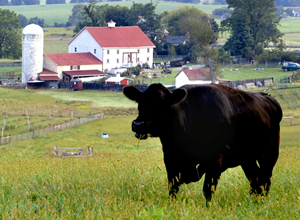
In the film, Boneta explains the $15,000 price tag for the little girl’s birthday party. The charges included a “special event” permit, and fees for safety inspections. She said that incident was just part of a campaign of harassment conducted by many levels of government against Liberty Farm in an attempt to force it to shut down.
After the screening of the film, Malone and Boneta answered questions from the audience. Several questions involved the motivation of the county.
Malone said, “On the surface anyway, their motive is to prevent growth. A lot of this comes down to NIMBY-ism (Not In My Back Yard). People think it’s great to have a farmers market on Saturday, but not so great to see cows. If Martha had just put a horse on the property there probably would have been no problem.”
Boneta said that at a certain point she realized that they were trying to take away her property rights. “It was a land grab,” she said. “The extent to which they went was so egregious they wanted to install 24-hour video cameras around the property so they could catch us doing something wrong.”
“Then in 2010 there was an IRS audit. What was peculiar is that I heard about it on the news before I was served any papers. A local politician knew I was being audited before I did. Audit fees came to $50,000 dollars with photocopying alone costing $6,000. They even had an IRS agent come to the farm and watch me collect eggs for a couple of hours.”
Other forms of harassment included long, repetitive inspections to try and find something not up to code, or in violation of land use. She was even faced with an anonymous charge of animal cruelty.
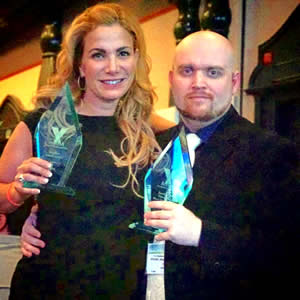
Boneta added, “It’s the American dream to own land and support your family. But, we’re losing family farms at an epic rate in this country. There are some people who don’t want to see farms.”
Malone and Boneta explained how she took her problem to the community and discovered she wasn’t the only farmer dealing with harassment. She harnessed community support and managed to have an amendment to Virginia’s Right to Farm Act introduced. Nicknamed the ‘Boneta Bill,” it aimed to protect small farmers, so that what happened to her never happens again.
It took another year, and a second bill, to finally control the overreaching local authorities. Now, property rights advocates use that bill as a template across the country to help other family farmers.
Farming in Fear details Boneta’s story, tracking the 10-year ordeal she experienced just to earn a living. It relies primarily on talking heads and shots of the farm. There is some footage of rallies as the Boneta Bill worked its way through the legislature and footage of the inspections. Although the format was simple, it message was powerful and Boneta’s personality and passion carry the film.
It won both the Anthem Film Festival Excellence in Filmmaking and Audience Choice Awards for short documentaries.
To find out about future screenings, check marthaboneta.com, Paris Barns on Facebook orhonestenterprise.tv. You can watch the trailer below.

